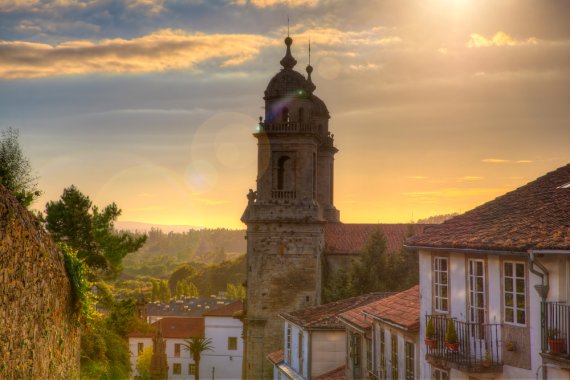The Camino de Santiago in the Spanish region of Galicia is very popular with contemporary pilgrims. © Shutterstock
Religious tourism is on the rise, says Heijman, and the pilgrimage to Santiago de Compostella, in the Spanish region of Galicia, is a good example. The region gets millions of tourists every year, and over 200 thousand of those tourists are pilgrims. One third of all visitors to the city of Santiago de Compostella are pilgrims. Heijman: ‘The advantage for the region is that pilgrims come all year round, whereas ‘ordinary’ tourism is often seasonal.’ These pilgrims need food and overnight accommodation. And they buy the odd souvenir. Heijman and his colleagues calculated the economic impact of pilgrims on Galicia, and published their findings in the International Journal of Religious Tourism and Pilgrimage.
The calculations revealed that in the year 2010, pilgrims contributed between 59 and 99 million euros to the region’s coffers. ‘Pilgrims spend less than other tourists, on average,’ says Heijman. ‘But this is still a fair-sized contribution.’ On top of the revenue, this religious tourism generates at the least 1362 and at best 2162 extra jobs. There are a total of about one million jobs in the whole of Galicia, so the number generated by pilgrims is still relatively small, but it is significant for the city of Santiago.
The effects are not limited to the tourist industry, either, says Heijman. ‘There are also indirect effects. A restaurant needs ingredients, for instance, which gives a boost to other sectors such as farming or fisheries. These effects are reflected in our analysis too.
It comes as no surprise that places of pilgrimage are good for the economy. Heijman: ‘They knew that back in the middle ages.’ For Galicia, the effect has been quantified now for the first time. ‘There are also people who would prefer to see fewer tourists, because they make it busier and cause house prices to go up. With the research techniques we used, we can see what the consequences of a growth or decline in tourism would be for incomes and job opportunities.’

